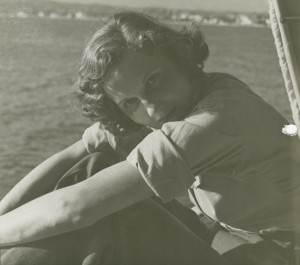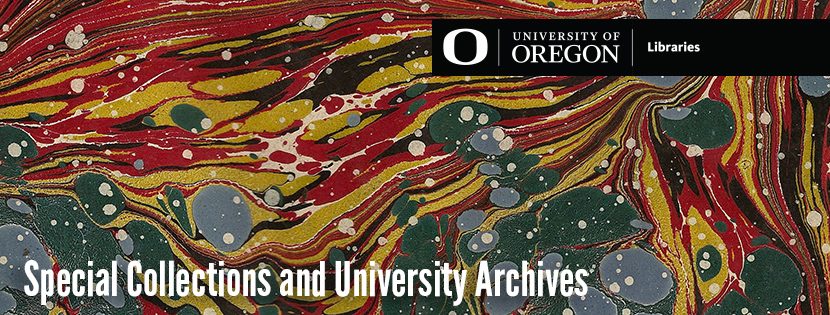Remembering James Tiptree, Jr. and celebrating Ursula K. Le Guin

A new Special Collections and University Archives digital exhibit No Intent to Deceive tells the real-life story of feminist science fiction author James Tiptree, Jr. and features a revealing selection of the author’s correspondence, photographs, manuscripts, and memorabilia with interpretive text by Jeneé Wilde of the University of Oregon Department of English.
Who was James Tiptree, Jr.? For nearly a decade, this mystery intrigued the science fiction world. When the answer finally arrived, it would open up fascinating new vistas of critical insight; ideas that are still being discussed to this day.
James Tiptree, Jr. was the pen name of Alice Sheldon, an award-winning feminist author of science fiction. Tiptree shot to fame in the late 1960s with a writing voice unlike any other. Tiptree’s published stories include “The Last Flight of Doctor Ain, ” “Houston, Houston, Do you Read?”, “The Women Men Don’t See,” “Her Smoke Rose up Forever,” The Girl Who was Plugged In,” “Love is the Plan, the Plan is Death,” among many others; and two novels, Up the Walls of the World (1978) and Brightness Falls from the Air. Winner of three Nebula Awards and two Hugo Awards between 1973 and 1977, he inspired impassioned debates among readers and critics, and struck up epistolary friendships with fellow writers Ursula K. Le Guin, Harlan Ellison, Robert Silverberg, and Joanna Russ. Tiptree’s frank, humorous, intimate letters dropped hints about a Chicago childhood, travels in colonial Africa, World War II service “in a Pentagon sub-basement,” and employment with the CIA. But none of his literary friends had ever seen Tiptree or spoken with the author in person.
Then in 1976 a few people received letters from Tiptree that told of his mother’s death. After checking the Chicago obituaries, his friends discovered that Tiptree could only be Alice Bradley Sheldon, surviving daughter. Watch highlights from the 2015 James Tiptree, Jr. Symposium at the University of Oregon.
The Tiptree Papers enriches Special Collections and University Archives’ growing collection of feminist science fiction manuscript collections, which include the Ursula K. Le Guin Papers, the Joanna Russ Papers, the Sally Miller Gearhart Papers, and the Suzette Haden Elgin Papers.
Ursula K. Le Guin’s work and life will be celebrated at the 2016 James Tiptree, Jr. Symposium December 2-3, 2016.

Ursula K. Le Guin (1929- ) is a remarkable poet, essayist, critic, translator, and storyteller. In all these forms, she never ceases to challenge our expectations about “words, women, places,” as the subtitle to her essay collection Dancing at the Edge of the World puts it. Her many awards testify to her literary skill and deep humanity, and her work has inspired a generation of writers by showing how the unreal can comment on (and incorporate) the real, and how the future can serve as a powerful metaphor for the present. Her writing combines perspectives from anthropology, feminism, science, history, utopian thought, and Taoist philosophy, all wrapped up in convincing and compelling narratives of exploration and self-discovery.
In a rare honor for a living author, the Library of America has recently inaugurated an edition of Le Guin’s works, collecting The Complete Orsinia in one volume.
The University of Oregon Libraries is honored to hold Le Guin’s papers in our special collections. Accompanying the symposium, an exhibit of photographs and collection materials from the Ursula K. Le Guin Papers will be on display in Special Collections & University Archives at the University of Oregon Knight Library.
By Jason Stone, Library Strategic Communications and Writing Specialist

